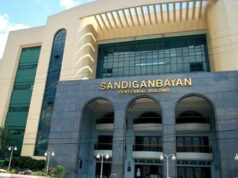DoST pushes circular economy to address plastic pollution
THE PHILIPPINES, identified as a major contributor to plastic pollution in waterways, should transition to a circular economy to address its plastic problem, the Department of Science and Technology (DoST) said.
“It advocates for the reuse, repurpose, and recycling of materials to reduce waste and extend the lifecycle of resources,” Secretary Renato U. Solidum, Jr. said during his speech on the 2nd day of National Science, Technology, and Innovation Week (NSTW) on Thursday.
Despite other countries having larger populations and producing the same number of plastics, the Philippines remains one of the top contributors to plastic pollution, Mr. Solidum said.
Citing figures from the United Nations Environment Programmer and the Coordinating Body on the Seas of East Asia, he said it is estimated that around 0.28 to 0.78 million tons of plastics per year are entering the oceans and coastal areas from Manila Bay alone.
Mr. Solidum said that the country’s current linear economic model has contributed to the worsening plastic problem.
“For too long, our economic model has followed a linear trajectory of ‘take, make, and dispose’,” Mr. Solidum said.
The Secretary shared DoST’s plans and strategies through Science Technology and Innovation (STI) for Circular Economy (STI4CE). This roadmap aims to integrate STI to gear country into a more circular, green, and sustainable economy.
DoST has already supported 53 circular economy research and development initiatives aimed at managing plastic waste, Mr. Solidum said.
STI4CE is organized into four categories — Think Green, Make Green, Turn Green, and Keep Green — addressing key sectors such as education, health, food, agriculture, among others.
Mr. Solidum said that the STI4CE roadmap has a total investment of P1.3 billion and will span from 2025 to 2029.
Jose Manuel F. Alba, Congressman of Bukidnon’s first legislative district, said at the press conference that while bills on the circular economy are progressing, improvements in public information dissemination are needed for greater awareness. — Edg Adrian A. Eva




